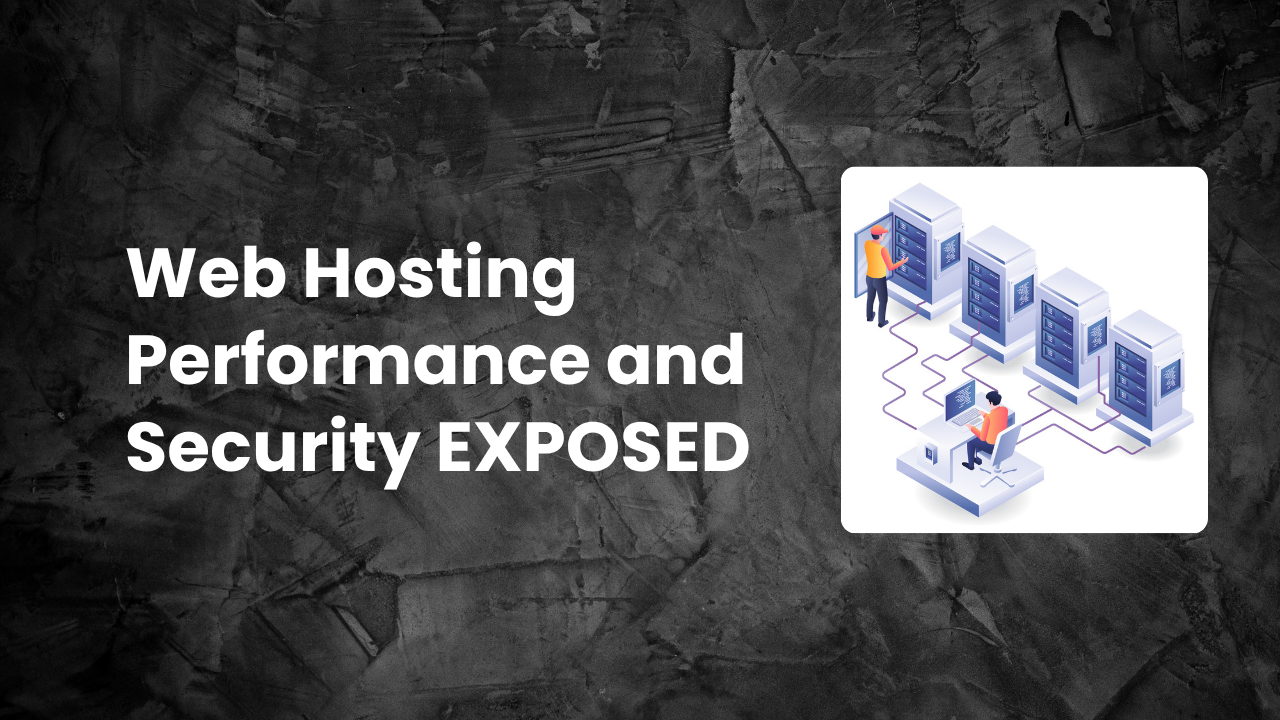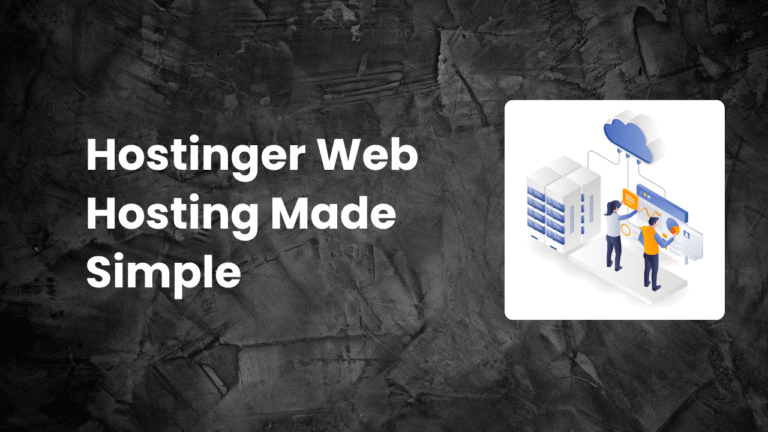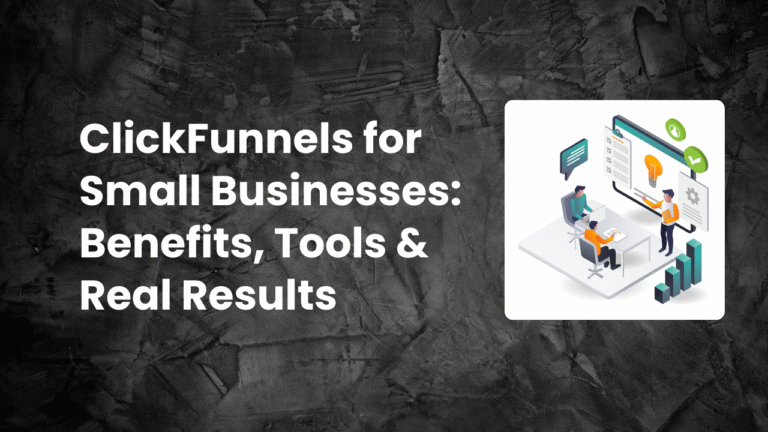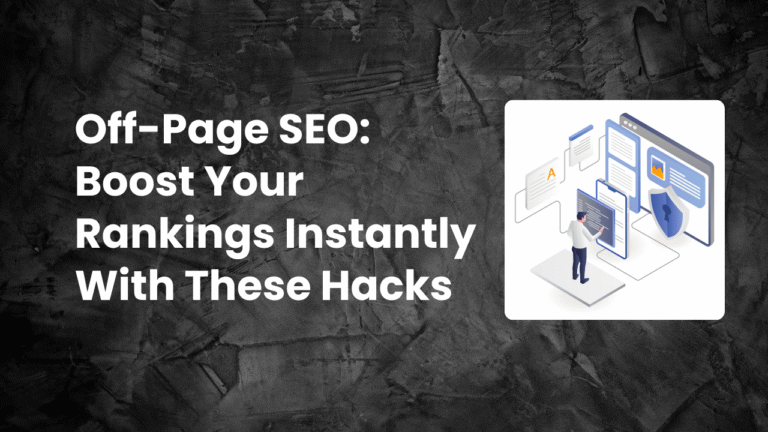Web hosting performance and security isn’t just a backend issue—it’s the very backbone of your website’s success. From how fast your pages load to how well your site defends against cyberattacks, these two elements quietly control your SEO rankings, user experience, bounce rates, and even your revenue.
In today’s digital world, website users have little patience for slow or unsafe websites. In fact, Google reports that 53% of mobile users abandon sites that take longer than three seconds to load (Think with Google). Worse still, data from IBM shows that the average cost of a data breach is $4.45 million, with small businesses often being the least prepared (IBM Cost of a Data Breach Report, 2023).
The stakes are higher than ever.
Whether you’re running a blog, an online store, or a corporate site, the performance and security of your web hosting directly affect everything from customer trust to conversion rates. A fast website keeps visitors happy. A secure one keeps your business safe.
In this blog post, we’ll explore how web hosting performance and security work together, why they matter so much, and what you can do to ensure your site delivers the speed, stability, and safety your visitors—and search engines—expect.
What Is Web Hosting Performance?
Let’s start with performance. In web hosting, performance generally refers to how quickly and reliably your website loads for users. But it goes deeper than just speed. True hosting performance also includes how well a host handles traffic spikes, how stable their infrastructure is, and how responsive their servers are to user requests.
It’s the difference between a site that loads instantly and a site that hangs endlessly before opening. It’s the difference between a site that crashes during a sale and one that handles thousands of visitors without blinking.
Server performance is influenced by several factors: hardware (SSDs vs HDDs), server type (shared, VPS, dedicated), caching systems, and server location. It’s also affected by how a host allocates resources among users and whether they cap or throttle bandwidth during high-traffic periods.
When your host underperforms, your entire website underperforms. That’s why your web hosting provider isn’t just a vendor—they’re a key partner in your online success.
The Real Cost of Poor Hosting Performance
A slow website doesn’t just frustrate users—it actively drives them away. According to Portent, websites that load in 1 second have a conversion rate 3x higher than those that take 5 seconds to load (Portent Research). Every additional second of delay causes a dramatic drop in engagement and revenue.
Search engines also notice. Google uses page speed as a ranking factor, especially for mobile. That means your host could be the reason your site isn’t climbing in search results—even if your content is excellent.
If you’re running an ecommerce store, poor performance is even more dangerous. Shoppers abandon carts if checkout pages lag or fail to load. Downtime during a flash sale can cost you thousands. And worse, performance issues can damage your reputation permanently.
So, performance isn’t optional—it’s a business-critical requirement.
Understanding Web Hosting Security
Now let’s talk about the other half of the equation: security. Your web hosting security refers to how well your host protects your website and its data from cyber threats.
That includes things like malware protection, DDoS mitigation, SSL encryption, firewalls, brute force prevention, and secure server configurations. It also involves regular software updates, backups, and server monitoring.
Security may not seem like an issue—until it is. Hackers don’t discriminate. Even small websites are frequent targets. In fact, over 30,000 websites are hacked every day, according to research from TechJury (TechJury 2023 Report).
Once your site is compromised, the fallout can be devastating. You could lose data, scare away users, get blacklisted by Google, or even face legal consequences for exposing customer information.
Web hosting security isn’t just about defending against hackers—it’s about building trust. If visitors see “Not Secure” in their browser bar or get a malware warning, they’ll leave immediately. You only get one chance to make a first impression.
How Hosting Providers Influence Security and Performance
A lot of site owners think performance and security are things they manage through themes, plugins, or optimization tools. But the reality is that your host controls the foundation. If the server itself is slow, outdated, or insecure, there’s only so much you can do on your own.
This is where high-quality hosting providers prove their value. The best hosts invest heavily in infrastructure—using modern SSD storage, powerful processors, and high-speed network routing to deliver top-tier performance.
They also implement advanced security protocols. That includes automated malware scans, active firewalls, security patches, and backups. Some even offer managed hosting where they handle updates and patching for you.
On the flip side, cheap or poorly managed hosts often skimp on these essentials. They might overload shared servers, delay security updates, or lack basic safeguards like DDoS protection. In the end, you get what you pay for.
If your hosting provider isn’t prioritizing performance and security, you’re gambling with your website’s future.
The Role of Data Centers in Speed and Reliability
Another overlooked factor in web hosting performance & security is the location and quality of your host’s data centers. These are the physical facilities where your website files are stored and delivered from.
The closer a user is to the data center, the faster your site loads for them. That’s why many top hosts offer multiple server locations and even Content Delivery Networks (CDNs)—which distribute your site across global nodes for better speed and redundancy.
But it’s not just about distance. The physical security, cooling, redundancy systems, and network setup of a data center all influence how reliable and secure your hosting is.
Top-tier data centers offer Tier III or Tier IV certifications, ensuring 99.99% uptime and enterprise-grade protection. If your host uses outdated or poorly secured facilities, your site could suffer—even if you never see it happening.
Always look into where your host’s servers are located and what level of infrastructure they use to protect them.
SSL Certificates and HTTPS
One of the simplest but most crucial security elements your host should provide is an SSL certificate. This enables HTTPS, which encrypts the connection between your site and your visitors.
It may seem basic, but it’s essential. Google considers HTTPS a ranking factor. Visitors trust it. Browsers label non-HTTPS sites as “Not Secure.” And for ecommerce or data collection, it’s legally required in many regions.
Most reputable hosting providers include a free SSL certificate from Let’s Encrypt with every plan. Some even offer premium SSLs for added features like extended validation and warranty coverage.
If your host charges extra for basic SSL, it’s a red flag. Security isn’t a luxury—it’s a baseline requirement in 2024 and beyond.
DDoS Protection, Firewalls, and Intrusion Prevention
Beyond SSL, true hosting-level security involves a multi-layered approach to protect against increasingly sophisticated threats. DDoS attacks—where hackers flood your site with fake traffic—can knock websites offline for hours. They’re more common than you think.
Good hosts use automated detection systems to block these attacks in real-time. Some use hardware-level firewalls, web application firewalls (WAFs), and intrusion detection systems (IDS) to spot and stop suspicious behavior before it causes harm.
Hosts like SiteGround, WP Engine, and Hostinger all offer advanced server-side protections. These aren’t features you can install with a plugin—they’re built into the server environment itself.
If your host can’t clearly explain how they handle attacks, malware, and exploits, you should think twice about trusting them with your site.
Backups and Disaster Recovery
Even the best servers fail occasionally. What matters is how your host responds—and whether they’ve got your back.
Daily, automatic backups are an essential part of both performance and security. If your site is hacked, deleted, or crashes after an update, you can restore a working version in minutes. Some hosts offer one-click restore options right from your dashboard.
Disaster recovery goes a step further. It’s about redundancy: mirrored servers, failover systems, and geographic replication that keep your site online even if one server goes down.
Make sure your hosting provider offers daily backups, stores them off-site, and allows easy restoration. It might seem like a small feature—until the day you desperately need it.
Shared Hosting vs VPS vs Dedicated: How Security Differs
When it comes to performance & security, the type of hosting you choose makes a big difference.
Shared hosting is the most affordable but also the most vulnerable. You’re sharing resources with hundreds of other websites, and if one of them gets infected or overloaded, your site can suffer too. It’s like living in an apartment with shared walls—convenient, but not private.
VPS (Virtual Private Server) hosting gives you your own slice of the server. It’s more secure and reliable since your environment is isolated from others. You can install custom security tools and manage resources more effectively.
Dedicated hosting gives you an entire server to yourself. It’s the most secure and powerful option, but also the most expensive and complex to manage.
Cloud hosting, like that offered by Hostinger or Cloudways, combines the best of both worlds. It scales resources automatically and offers isolated environments with excellent security.
Choosing the right type of hosting is one of the most important security decisions you’ll make.
How to Evaluate a Hosting Provider’s Security and Performance
Before choosing a web host, do your homework. Don’t rely solely on marketing claims. Dig deeper.
Ask questions like:
- What kind of server technology do they use?
- Do they offer SSD storage?
- What’s their average uptime (and do they back it with an SLA)?
- What’s included in their security suite?
- Do they scan for malware automatically?
- Are backups included and easy to restore?
- Do they offer global data centers or CDN integration?
Read reviews from trusted sources. Check uptime stats on independent platforms like UptimeRobot. Look at real user experiences, not just affiliate blogs.
If a host consistently underperforms or lacks transparency, move on. There are too many excellent options on the market today to settle for subpar performance or sketchy security.
Conclusion: Performance and Security Are the Pillars of a Successful Website
Your website is more than just a collection of pages—it’s your business, your brand, your message to the world. And nothing undermines that faster than poor performance or weak security.
Web hosting performance & security may not be flashy topics, but they’re absolutely essential. Without speed, users won’t stay. Without safety, they won’t trust. Without both, your site won’t grow.
By choosing a quality hosting provider and understanding what to look for—SSD storage, SSL, daily backups, DDoS protection, fast response times—you give your site the foundation it needs to thrive in today’s competitive online world.
Don’t treat your web host like an afterthought. Treat it like the infrastructure that supports everything you do online—because that’s exactly what it is.





